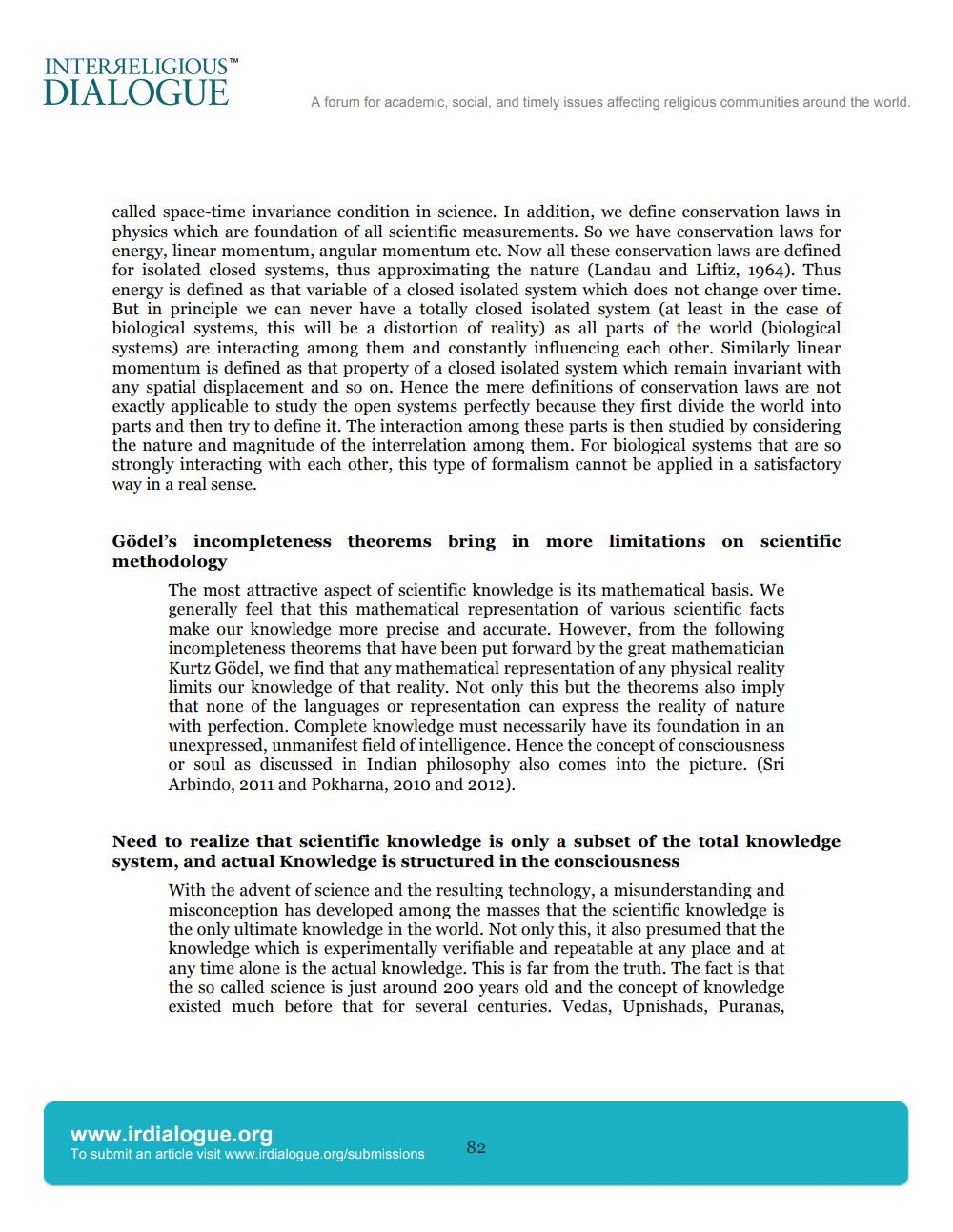________________
INTERJELIGIOUS DIALOGUE
A forum for academic, social, and timely issues affecting religious communities around the world.
called space-time invariance condition in science. In addition, we define conservation laws in physics which are foundation of all scientific measurements. So we have conservation laws for energy, linear momentum, angular momentum etc. Now all these conservation laws are defined for isolated closed systems, thus approximating the nature (Landau and Liftiz, 1964). Thus energy is defined as that variable of a closed isolated system which does not change over time. But in principle we can never have a totally closed isolated system (at least in the case of biological systems, this will be a distortion of reality) as all parts of the world (biological systems) are interacting among them and constantly influencing each other. Similarly linear momentum is defined as that property of a closed isolated system which remain invariant with any spatial displacement and so on. Hence the mere definitions of conservation laws are not exactly applicable to study the open systems perfectly because they first divide the world into parts and then try to define it. The interaction among these parts is then studied by considering the nature and magnitude of the interrelation among them. For biological systems that are so strongly interacting with each other, this type of formalism cannot be applied in a satisfactory way in a real sense.
Gödel's incompleteness theorems bring in more limitations on scientific methodology
The most attractive aspect of scientific knowledge is its mathematical basis. We generally feel that this mathematical representation of various scientific facts make our knowledge more precise and accurate. However, from the following incompleteness theorems that have been put forward by the great mathematician Kurtz Gödel, we find that any mathematical representation of any physical reality limits our knowledge of that reality. Not only this but the theorems also imply that none of the languages or representation can express the reality of nature with perfection. Complete knowledge must necessarily have its foundation in an unexpressed, unmanifest field of intelligence. Hence the concept of consciousness or soul as discussed in Indian philosophy also comes into the picture. (Sri Arbindo, 2011 and Pokharna, 2010 and 2012).
Need to realize that scientific knowledge is only a subset of the total knowledge system, and actual Knowledge is structured in the consciousness
With the advent of science and the resulting technology, a misunderstanding and misconception has developed among the masses that the scientific knowledge is the only ultimate knowledge in the world. Not only this, it also presumed that the knowledge which is experimentally verifiable and repeatable at any place and at any time alone is the actual knowledge. This is far from the truth. The fact is that the so called science is just around 200 years old and the concept of knowledge existed much before that for several centuries. Vedas, Upnishads, Puranas,
www.irdialogue.org To submit an article visit www.irdialogue.org/submissions
82




